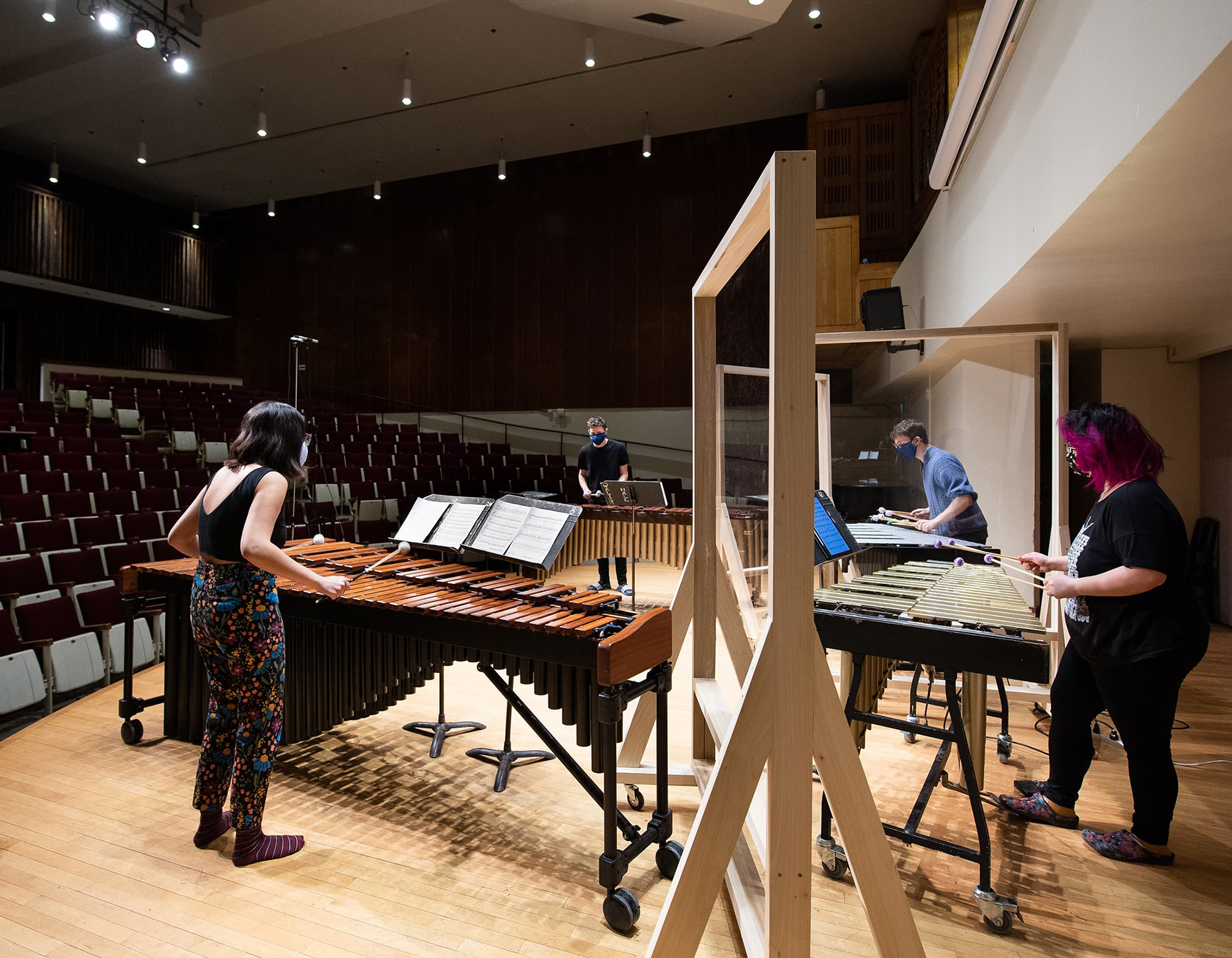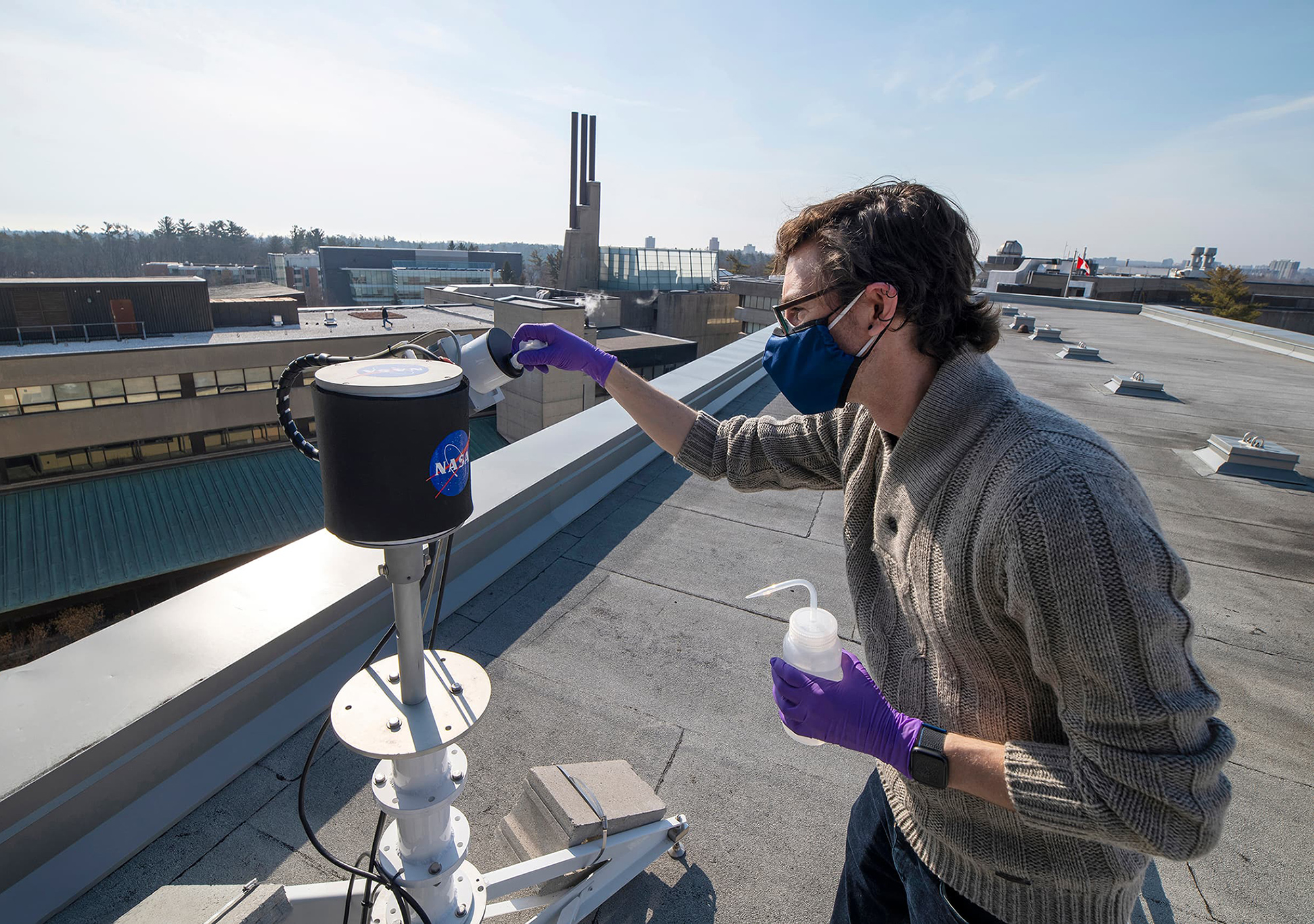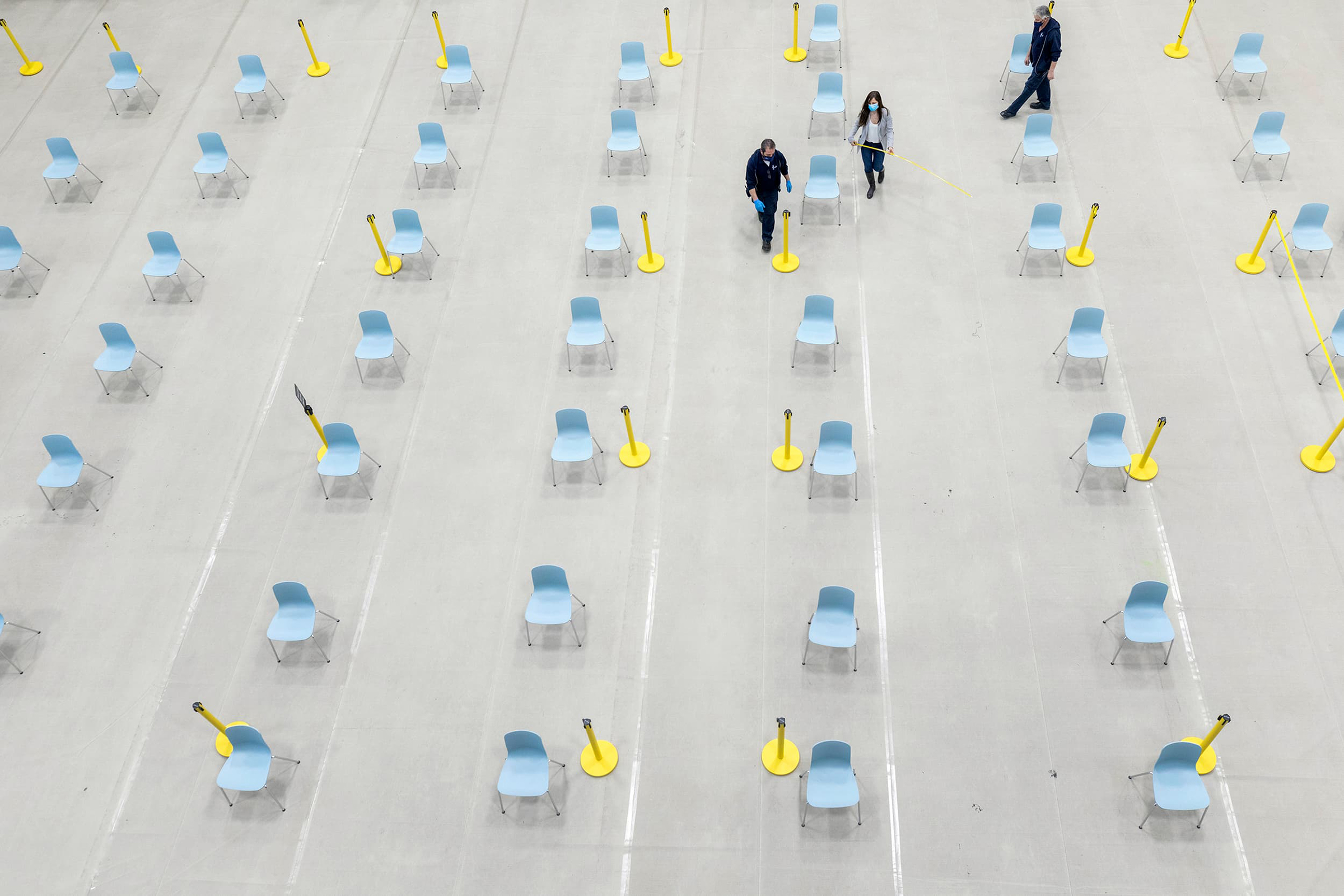Vaccine Ready
Date: February 19
Time: 1:10 p.m.
Campus: Mississauga
Staff members measure the distance between chairs as they prepare for the March 1 opening of the COVID-19 vaccine clinic at U of T Mississauga. The centre – administered by Trillium Health Partners and overseen by Peel Public Health – opened with 20 vaccine stations located in the large gymnasium of UTM’s Recreation, Athletics & Wellness Centre and a spacious post-vaccination observation area (pictured). The clinic currently has the capacity to deliver up to 2,000 doses of vaccine daily and can ramp up to 4,000 a day, depending on supply.
The UTM campus is well positioned to support the public vaccination campaign. Specialized freezers, typically used for scientific research, are storing the vaccine in a secure and undisclosed location nearby. The gymnasium is accessible to people with mobility challenges and is easy to reach by car or public transit. Ultimately, the UTM site could vaccinate approximately 500,000 people.
– Patricia Lonergan

Playing to a New Beat
Date: March 1
Time: 1:34 p.m.
Campus: St. George
Students and professors at the Faculty of Music have had to be especially creative during the pandemic. Initial rehearsals now happen over Zoom. Instead of large ensembles and live concerts – mainstays of the academic year for those earning a degree in performance – small groups of musicians record themselves and play back the videos later for “watch parties.”
Tyler Cunningham, Joyce To, Jasmine Tsui and Tim Roth are pursuing master’s degrees in percussion. Here, they’ve set up at Walter Hall, with barriers between them, to rehearse “Gamelan Tango,” a piece for vibraphone and marimba by master’s composition student Menelaos Peistikos.
Among musicians, percussionists have had it easy in comparison with brass or woodwind players, or singers, says the students’ adviser, Prof. Aiyun Huang: “We can play with a mask on.” But even percussionists are spending a lot less time in live rehearsals, and that means fewer chances to be spontaneously creative together. Under the circumstances, Huang says, “It’s amazing how students have adapted.”
– Scott Anderson

Pollution Patrol
Date: March 10
Time: 9:58 a.m.
Campus: Scarborough
Perched on top of the Arts and Administration Building is a specialized instrument that researchers are using to measure air quality.
The Pandora Spectrometer System uses UV and visible light to measure levels of ozone, nitrogen dioxide and formaldehyde in the atmosphere. These hazardous pollutants contribute to poor air quality and can lead to adverse health effects, particularly respiratory illnesses.
Each month, the lens of the instrument is cleaned of dust and moisture to ensure it provides accurate readings. Researchers at U of T Scarborough and Environment Canada are using the device for local and regional air quality studies as well as to collect data for the Pandonia Global Network – an international project gathering air quality measurements from more than 140 locations around the world.
– Don Campbell





